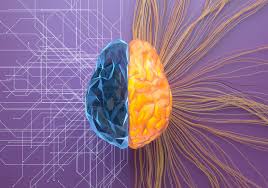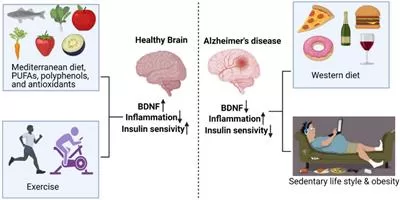Experts Weigh In on the Effectiveness of Brain Training Programs in Preserving Cognitive Function
In the quest to maintain cognitive health and stave off conditions like Alzheimer’s disease, the concept of “use it or lose it” has gained traction. But what exactly constitutes a “cognitively active lifestyle,” and do activities like crosswords and Sudoku really count?
According to experts in the field, brain training is a popular approach often touted as a means to strengthen specific cognitive functions. Dr. Yuko Hara, director of Aging and Alzheimer’s Prevention at the Alzheimer’s Drug Discovery Foundation, explains that brain training typically involves tasks designed to enhance attention, focus, concentration, and memory.
Dr. Manuel Montero-Odasso, director of the Gait and Brain Lab at Parkwood Institute, elaborates on the mechanism behind cognitive training, highlighting its role in stimulating neuroplasticity—the brain’s ability to form new connections and pathways. He emphasizes that cognitive training can lead to anatomical changes in the brain, particularly in areas responsible for executive functions like attention and multitasking.
However, brain training is not without controversy. Some manufacturers have faced criticism and fines for making unsubstantiated claims about the effectiveness of their products. While research suggests that brain training can improve performance on specific tasks, its broader impact on everyday cognitive function and the prevention of dementia remains uncertain.
Henry Mahncke, CEO of Posit Science/BrainHQ, defends the efficacy of certain brain training programs, citing robust evidence supporting their ability to enhance cognitive function. BrainHQ, for example, offers a suite of exercises designed to improve brain processing speed and accuracy, which Mahncke believes can help counteract age-related cognitive decline.
Supporting studies, such as the IMPACT and ACTIVE trials, have demonstrated the potential benefits of cognitive training in reducing the risk of dementia and improving cognitive performance. These findings underscore the importance of continued research into brain training as a preventive measure against cognitive decline.
Beyond formal brain-training programs, engaging in mentally stimulating activities like puzzles, board games, and learning new skills may also contribute to cognitive reserve—the brain’s ability to resist age-related changes. Dr. Hara highlights observational studies suggesting a link between activities like internet use and a reduced risk of dementia.
Dr. Montero-Odasso emphasizes the importance of novelty in stimulating cognitive function, suggesting that engaging in new activities or learning unfamiliar skills may be more beneficial than simply repeating familiar tasks. He cites research supporting the cognitive benefits of activities like dancing, which combine physical exercise, learning, and social interaction.
Looking ahead, Mahncke advocates for the broader integration of evidence-based brain training into community programs and healthcare services, akin to activities like yoga and swimming. With the aging population on the rise, he believes that expanding access to brain training could have a transformative impact on cognitive health.
While the debate over brain training continues, one thing remains clear: preserving cognitive health requires a proactive approach that includes both mental and physical stimulation. As research in this field advances, the quest to unlock the secrets of a sharp mind continues to evolve.











